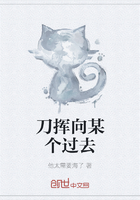The composition of the Moscovite council was at the beginning very like that which we find in France under the early Capetian kings. The curia regis was chiefly formed from among the high court officials, such as the majordome, the marshal, the constable, the chancellor or cancellarius, the camerer or camerarius, etc. The same may be said of the Moscovite Douma of the fourteenth century, as well as of the privy council of each and every of the principalities into which medieval Russia was divided anterior to the centralising growth of the Moscovite power. The business transacted at the court of a Russian prince being distributed among different departments, the heads of these departments were summoned to sit in the council and received the name of boyars. Money being scarce, the boyars were paid for their services by the donation of crown lands, and this mode of payment being known under the name of "pont," the surname of the boyars was "poutevii boyari." Most of the boyars summoned to sit in the Douma were exempted from military service, and especially from the duty of opposing the enemy at the head of their own retainers, not so much in the open country as in their own castles. Hence the origin of another surname "wedennii boiari"which distinguished the most powerful members of the Russian medieval nobility. If we inquire into the origin of those admitted to the princely council, we shall see that they belonged to the same class as that which furnished officers to the army and the chiefs of the central and provincial administration. This class is precisely that known to the Anglo-Saxons as Thanes, and to the Merovingian kings under the title of Antrustions. The peculiarity of medieval Russia consisted in this, that, being divided into a great number of principalities, it left to the knightly class the liberty of freely choosing the prince whom they would like to follow. The Russian knightly class, corresponding to the "ministeriels" of feudal Germany, the so-called "slougili liudi" or "men of service," were authorised by custom to remain in the service of any prince as long as they pleased, and to change from one prince to another according to their own pleasure. Before attaching himself to any prince the "man of service" signed a sort of contract with the political head of the country in which he intended to settle. On taking service, a charter was delivered to the knight in which his duties and rights were precisely stated, and the prince had no right to infringe these conditions. In case of bad treatment, the knight found no difficulty in leaving the prince whom he was serving and in entering into similar relations with some other of the numerous petty potentates, who ruled over medieval Russia.
This right of freely passing from the service of one prince to that of another was clearly recognised by the following sentence in a treaty signed by the prince of Tver with the Grand Duke of Lithuania, Kasimir, as late as the middle of the fifteenth century, 1449; "Our bovars and men of service may freely withdraw from one of us to the other." This document is probably the last recognition of the liberty of removal once enjoyed by the knightly class.
The increasing power of the Grand Duke of Moscovy could not tolerate this survival of federal autonomy. This prince did not object to the liberty of removal as long as it served his own purposes by increasing the number of persons seeking service in the Moscovite army and Moscovite civil service, but as soon as the tyranny of some of the Grand Dukes caused their own knights to withdraw to Poland and Lithuania, severe measures were taken to put a stop to this movement of emigration. The Grand Duke began to confiscate the grants of land ("po mestie") of the departing knights, and every time he could lay hands on one of these seceders he was sure to throw him into prison, very often together with his wife and children. The clergy, always on the side of the secular power, more than once likened the behaviour of a seceding knight to the conduct of Judas, and declared it to be not only treason against the State but also a sin in the eyes of God.














